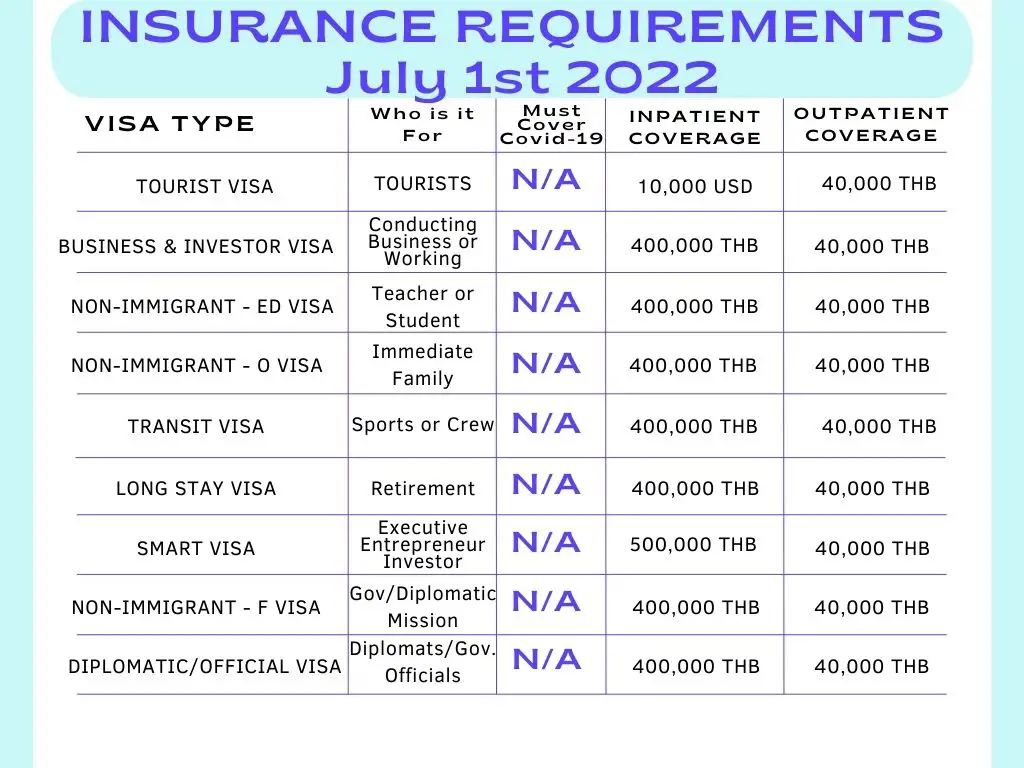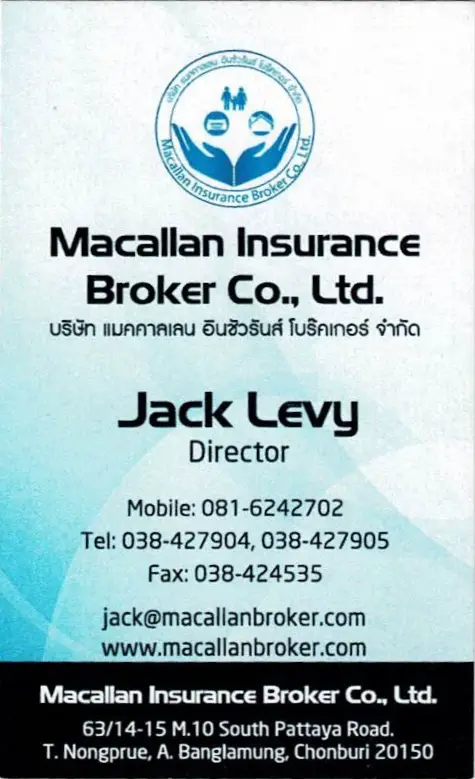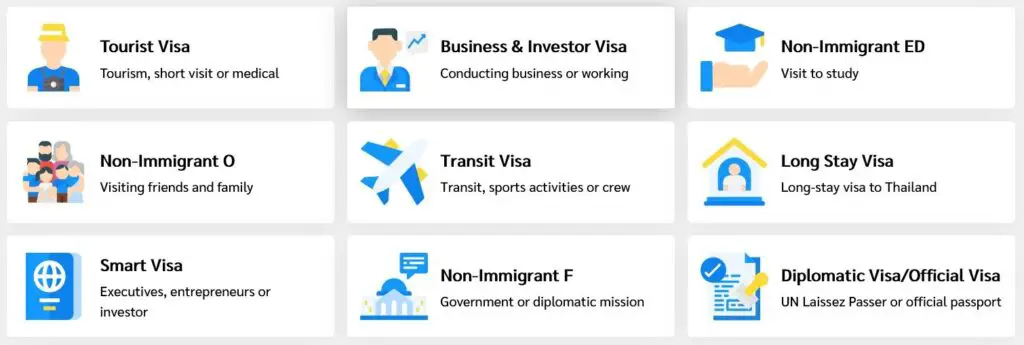Thailand is a great place to live, visit and settle down if it suits you. People arrived, and Thailand welcomed them with open arms. Over 40 million visitors came to Thailand in 2019. The majority arrived with health insurance and had no issues. Some arrived without insurance and were treated by hospitals here in Thailand. Legally all hospitals in Thailand must look after you for 72 hours. This created problems with unpaid bills, and this has now been addressed. For clarity, we have created this Frequently Asked Thailand Insurance Questions Page.
The answers are not as complicated as they seem. There are a lot of questions by tourists and Expats alike surrounding the Insurance requirements for visiting and staying in Thailand.
Updated September 2022
Summary Table


Insurance requirements are up to date as of July 2022.
Thailand may change its Insurance Requirements. We will adjust this post as soon as any changes are made.
However, you are advised to verify before arriving in Thailand.
My Insurance broker is listed here. Jack will be happy to advise you on up-to-date insurance requirements.
For Tourists

Insurance for Tourists in Thailand became very simple in the post-COVID era.
As of July 1st, 2022 tourists are no longer required to have proof of insurance on arrival. I can confirm this is the case. On a recent trip to Cambodia in late August, I was not required to show proof of insurance.
To confirm, all tourist arrivals into Thailand are NOT required to have insurance, no matter what entry path they use.
Types of Visas to Enter Thailand
There are many ways to enter Thailand and many different types of Visas categories to consider. Click the Link to review each visa requirement on the Thailand visa site
Business & Investor Visa – conducting Business or Working

The Non-Immigrant-B (Business) and the Non-Immigrant-IB (Investor in a Business)
Insurance required – minimum of 400,000 THB per inpatient treatment and 40,000 THB outpatient treatment.
With a Work Permit
If you are working in Thailand for a big company with a work permit then most likely you will have insurance through your company. That is great and this insurance is most likely comprehensive and covers everything from in-patient, out-patient, and emergency repatriation.
You have no insurance worries, until and or if you decide to stay after your work is over, you will need an individual policy after your work is finished. You may be able to continue your work policy by converting it to cover you as an individual. If you can this is a good option. You should check this option before you reach the end of your employment.
If you work for a small company, your insurance may be through the Thailand National Health Insurance. This coverage is less desirable as there are several limitations:
- The limit per treatment is 80,000.00 THB.
- You are limited to Government hospitals for treatment.
- You will need to wait longer at the Government hospitals.
In theory, you can maintain your national health insurance after you finish working by paying 100 THB per month directly to the government. However, this is only available to foreigners up to the age of 55.
Non Immigrant ED visa – Education

This is a visa to study in Thailand. To perform and or participate in an internship program in Thailand.
To perform Buddhist or religious studies, perform ritual activities, or participate in a religious mission with approval from a Thai authority.
Insurance required – minimum of 400,000 THB per inpatient treatment and 40,000 THB outpatient treatment.
Non-immigrant O visa – The Marriage Visa

This is for the immediate family of a Thai national (wife, husband, parent, child).
This will apply to the spouse of a Thai national, (husband or wife).
When you are visiting with immediate family.
Insurance required – minimum 400,000 THB per inpatient and 40,000 THB outpatient treatment.
Transit Visa

This is for a sports activity (joining a tournament, or a crew for a boat, plane, etc).
The Transit visa has 3 categories.
- Category TS – for foreign nations transiting through Thailand on their way to another destination.
- Category S – for foreign nationals who are involved in sports events inside the kingdom.
- Category C – for foreign nationals who are part of a crew/member of a conveyance, that has arrived in Thailand (boat, plane, train).
For more information on when a Transit Visa is required, please check here. (Visa Guide. world).
Long Stay Visa- includes Non-Immigrant OA and OX visa – Retirement

Non-Immigrant O-A is for foreigners over the age of 50.
Insurance Required – minimum 400,000 THB per inpatient and 40,000 THB outpatient treatment.
Non-Immigrant O-X (ten years) Is for foreigners over the age of 50 from the following countries, Japan, Australia, Denmark, Finland, France, Germany, Italy, the Netherlands, Norway, Sweden, Switzerland, the United Kingdom, Canada, and the United States of America.
Insurance Required – minimum 400,000 THB per inpatient and 40,000 THB outpatient treatment.
Smart Visa – executives, entrepreneurs, investor

SMART Visa is a new visa class aimed at attracting entrepreneurs to Thailand.
The Smart Visa is offered to foreign experts, executives, entrepreneurs, and investors who wish to enter the Kingdom of Thailand to work or to invest in the following “10 S-Curve” industries or the country’s targeted industries.
For more details on the Smart Visa check out their site.
- Next-Generation Automotive
- Smart Electronics
- Affluent, Medical and Wellness Tourism
- Agriculture and Biotechnology
- Food for the Future
- Automation and Robotics
- Aviation and Logistics
- Biofuels and Biochemicals
- Digital
Insurance Required – minimum 500,000 THB for inpatient coverage – outpatient is not mentioned.
Non-Immigrant F visa – on a Government or Diplomatic mission.

This visa is for foreigners on a Government or Diplomatic vision.
Insurance Required – minimum 400,000 THB per inpatient and 40,000 THB outpatient treatment.
Diplomat Visa/Official Visa

This visa is for Diplomats or officials on a Government Mission
Insurance Required – minimum 400,000 THB per inpatient and 40,000 THB outpatient treatment.
Summary
Medical insurance is no longer a requirement when traveling to Thailand. Though I do not understand why anyone would travel without medical insurance, some people did.
There are many visas available for travelers to arrive in Thailand. From casual visitors who just want to visit for a week or so, to entrepreneurs looking to set up a business and retirees who want to stay for 10 years at a time. There are many ways you can arrive and stay in Thailand and medical/health insurance is a big part of all of them. Be sure you have the correct medical coverage so you do not get turned away at arrival.
Thailand had some great medical facilities and many foreigners come here just to take advantage of them. Medical Tourism is on the rise globally and Thailand encourages medical tourism. Now, however medical insurance is required to enter the kingdom.
Be certain you have the required coverage when planning your trip. Travel insurance is not expensive and to me, it seems foolish to travel without it.




